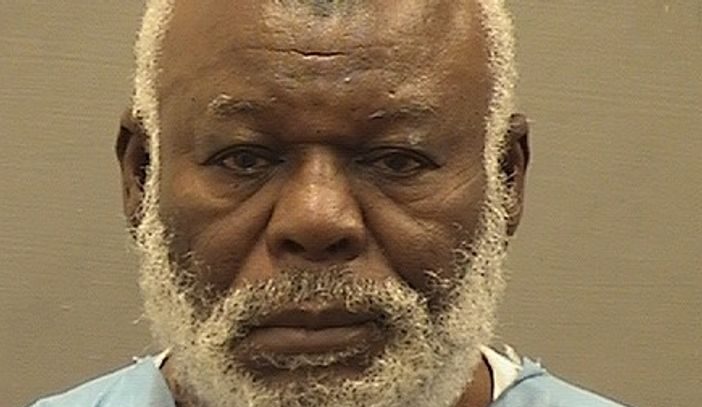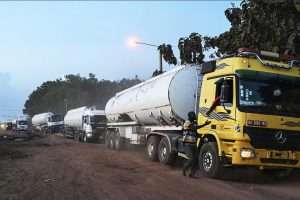US Extradition of Lockerbie Suspect Raises Concerns

Despite the US and Libya completely closing the Lockerbie dossier – both legally and financially – the tragic terror attack of December 22nd 1988 literally refuses to die, raising a repugnant smell coming from the US, where a cabal of officials insist on keeping it alive for motives which can only be described as louche, at best.
Something really stinks about the Lockerbie tragedy.
In recent days, news of Libya’s unlikely involvement surfaced with the extradition of an intelligence officer who the Americans claim is the bomb maker – without offering media, or Libyan authorities a shred of tangible evidence which would hold up in any international court.
The move though is not supported by all groups in Libya.
Heads of the Defense and Foreign Affairs Committees of the Libyan Parliament, Talal al-Mihoub and Youssef al-Aqouri, has called for an urgent investigation into the extradition of the Libyan national, Abu Agila Masud, to the United States, over allegation on his connection to the Lockerbie bombing in 1988.
In a joint statement, al-Mihoub and al-Aqouri considered the extradition of Masud a blatant violation of national sovereignty and an infringement of the rights of the Libyan citizen.
They stressed the Parliament’s refusal to reopen the file of the Lockerbie case, stressing that the case file had been completely closed politically and legally, according to the text of the agreement signed between the United States and Libya in 2003.
One DC based analyst was shocked by the move taking a very dim view of Libya’s leading politicos, hinting that they may face proceedings in international courts – and going as far as to call it “high treason”.
“The extradition of Masud in a twisted, illegal and immoral way by Dbeibeh (Libyan outgoing Prime Minister) and Al-Mangoush (Dbeibeh government’s Foreign Minister) will open the doors of legal and political accountability for them both,” said Hafed Al-Ghwell, the senior fellow and executive director of the North Africa Initiative at the SAIS Foreign Policy Institute (FPI) of Johns Hopkins University.
“The extradition of a Libyan citizen to a foreign country may amount to high treason,” he stressed.
“If they think the United States will protect them because of this handover, then they are delusional,” he told a website based in Libya.
Abu Agila Masud, a Libyan intelligence official, will face federal charges in Washington over alleged involvement in the 1988 Lockerbie bombing, the U.S. Justice Department confirmed on 11th November.
The extradition though merely shows how the US fails to respect international laws – even those it uses to its advantage – and will have implications in the future in the MENA region.
Indeed, Al-Mihoub and Al-Aqouri affirmed that extradition is not legally permissible, given that there is no cooperation agreement in this regard with the United States, and there is no ruling issued in this regard, stressing that Libyan sovereignty requires that the accused be tried before the Libyan judiciary.
The two MPs denounced in the strongest terms the extradition of Masud, as this is a grave legal and human rights violation that affects the dignity of the Libyan citizen and the country’s sovereignty.
Eighty eight members of the Libyan House of Representatives (HoR) have called on the presidency to hold an emergency session regarding the extradition of the intelligence official Abu-Agila Masud to U.S.A.
Even a respected campaigner and victim of Lockerbie struggles to give an credibility to the US when handling the Lockerbie case. Dr Jim Swire, whose daughter died in the bombing and who represents the families said the man accused of making the explosives should be tried in a court determined by the UN.
“There are so many loose ends that hang from this dreadful case, largely emanating from America, that I think we should remember what (former president of South Africa Nelson) Mandela said to the world and to us then, and seek a court that is free of being beholden to any nation directly involved in the atrocity itself,” Swire told BBC Radio Scotland.
“I think (the trial) should not take place in America. I think, in view of what we now know about how Scotland handled the case, it should not take place in Scotland.
“What we’ve always been after amongst the British relatives is the truth and not a fabrication that might seem to be replacing the truth.”
Dr Swire believes, like a number of journalists and investigators, that the bomb was planted on the plane at Heathrow airport by a terrorist cell betrothed to Syria and paid by Iran, using a specific type of explosive device that only they knew how to make and operate. He, like the respected number of journalists and investigators who have combed through the evidence, can’t see any connection with Libya and is very skeptical about America’s stoic determination to implicate Libya, even today.
Want to chase the pulse of North Africa?
Subscribe to receive our FREE weekly PDF magazine














